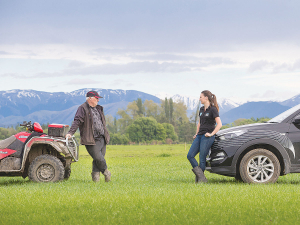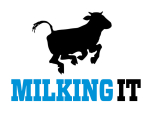While the loan is helpful for Synlait in terms of providing evidence behind Bright Dairy's previous verbal support, Montgomerie says the key stabilisation step for the listed milk processor would be its North Island asset sale or an equity raise.
He told Dairy News that the sale of Synlait's Pokeno plant and a canning facility is the key driver. An equity raise exercise maybe a step too far for Synlait.
"We think it is unlikely an equity raise will be sufficient to alleviate balance sheet concerns given the depressed share price, 20% shareholder a2 Milk Company's likely lack of participation, and possible challenges in getting other shareholders to provide more equity.
"That said, we are not ruling out Bright Dairy becoming more active."
But he warns that the situation remains precarious as operational performance continues to worsen, debt reduction is slower than previously expected and the balance sheet needs a near urgent injection/repair.
"Without a Pokeno asset sale, debt and earnings alleviation, it is possible Synlait will not reach its covenants in financial year 2025."
Synlait provided a market update last week, piling more bad news on shareholders and sending its share price to a new low of 39c.
The company is now forecasting that it's unlikely to meet three of its current banking covenants as at 31 July 2024, the interest coverage ratio, leverage ratio and senior leverage ratio.
"This reflects the timing of Synlait's deleveraging and further weakening in its financial performance," it says.
The company has also been unable to find a buyer for its Dairyworks cheese subsidiary and signalled a further drip in operating performance: its earnings before interest, taxes, depreciation, and amortisation (EBITDA) is now expected to be on the lower end of the previous forecast range of $45 million to $60 million.
At the same time, a significant majority of farmer suppliers have issued cessation notices that come into effect in two years.
Montgomerie says the cessation notices from farmers pose a significant risk.
"It definitely implies an acceleration in cessation notices over the past two to three months," he says.
However, Montgomerie points out that Synlait does have time to prove itself to farmers as the cessation window is two years, thus it shouldn't have a material impact on the company and its customers performance until financial year 2027.
"The acceleration in cessation notices is hardly surprising, given Fonterra's (and others') strong competitive positioning through superior advance rate payments, superior balance sheet, superior dividends, plus the lure of a capital return in the case of Fonterra and similar milk prices.
"This would only start to have a material financial impact from FY27. It is important to emphasise that it is just a notice at this stage and SML does have time to improve the situation. Once supply exists, it will prove very difficult to get it back."
Synlait chief executive Grant Watson believes that Synlait presents an excellent value proposition to farmers, "with our best-in-class Lead with Pride programme and attractive specialty milk premiums [being] stand out features".
"We are pleased to confirm a competitive advance rate profile for the 2024/25 season, with an opening advance rate of $6/kgMS," he told Dairy News.
"The new profile accelerates the proportion of the full season milk price paid throughout the season."











